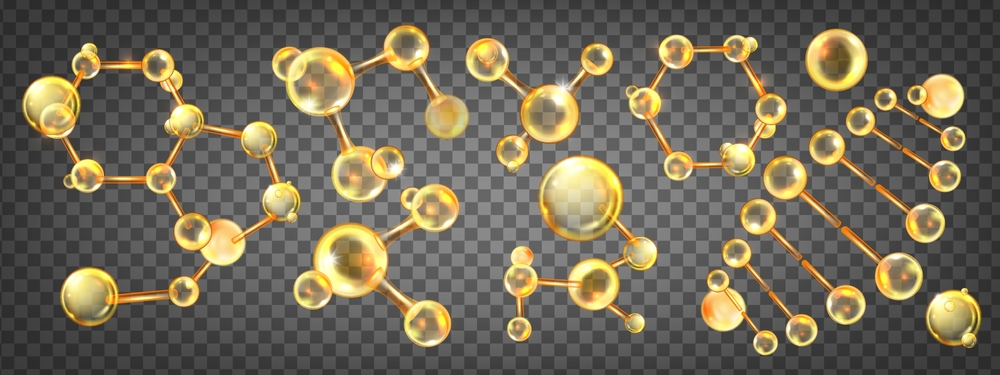Does Collagen Increase Testosterone?

Collagen itself does not directly increase testosterone levels, but it may support overall health and physical activity, which can indirectly benefit testosterone production
Introduction
Collagen has become a popular supplement in recent years, praised for its benefits on skin health, joint support, and overall vitality. However, there is growing interest in whether collagen can influence testosterone levels. Testosterone, a crucial hormone for muscle growth, energy levels, and male health, is vital for both men and women. This article will explore the relationship between collagen and testosterone, examining scientific evidence and potential mechanisms.
Understanding Collagen
Collagen is the most abundant protein in the human body, comprising about 30% of the body's protein content. It is a major component of connective tissues, including skin, tendons, ligaments, and bones. Collagen supplements are typically derived from animal sources and come in various forms, such as collagen peptides and hydrolyzed collagen.
Types of Collagen
There are several types of collagen, but the most common ones in supplements are:
- Type I: Found in skin, bones, and tendons.
- Type II: Predominantly present in cartilage.
- Type III: Found in skin, muscles, and blood vessels.
The Role of Testosterone
Testosterone is a steroid hormone produced mainly in the testes in men and the ovaries in women, with small amounts produced by the adrenal glands. It is essential for:
- Muscle mass and strength
- Bone density
- Red blood cell production
- Mood and cognitive function
- Sex drive and reproductive health
Testosterone levels naturally decline with age, leading to a variety of health issues, including decreased muscle mass, increased body fat, and reduced energy levels.
Collagen and Hormonal Balance
Amino Acid Profile
Collagen is rich in specific amino acids, such as glycine, proline, and hydroxyproline. These amino acids play critical roles in collagen synthesis and overall bodily functions. Glycine, in particular, is involved in the production of creatine, which has been linked to increased muscle mass and improved performance. There is speculation that these amino acids might influence hormonal balance, including testosterone levels.
Impact on Joint and Muscle Health
One of the indirect ways collagen could influence testosterone is through its benefits on joint and muscle health. Improved joint function and reduced pain can enhance physical activity, which is known to boost testosterone levels. Regular exercise, particularly resistance training, is a significant natural stimulator of testosterone production.
Collagen and Protein Synthesis
Adequate protein intake is essential for muscle repair and growth, processes that are influenced by testosterone. Collagen supplements contribute to the overall protein intake, potentially aiding in muscle maintenance and growth. This improved muscle condition can indirectly support healthy testosterone levels.
Scientific Evidence
Studies on Collagen and Testosterone
There is limited direct research specifically linking collagen supplementation to increased testosterone levels. However, several studies provide insights into the possible connections:
- Protein Supplementation: Research has shown that protein supplements can support muscle growth and repair, which are crucial for maintaining healthy testosterone levels. Collagen, being a protein, can contribute to this effect.
- Exercise and Recovery: Studies indicate that collagen supplements can reduce joint pain and improve recovery times, allowing for more consistent and intense exercise. Enhanced physical activity is a well-known booster of testosterone levels.
Indirect Benefits
While direct evidence is sparse, the indirect benefits of collagen on testosterone levels are more apparent. Improved joint health, reduced inflammation, and enhanced muscle recovery from collagen supplementation can all contribute to a more active lifestyle, which in turn supports higher testosterone levels.
Potential Mechanisms
Reduction of Inflammation
Chronic inflammation is known to negatively affect testosterone levels. Collagen has anti-inflammatory properties that can help reduce systemic inflammation, potentially leading to an environment conducive to higher testosterone production.
Improved Gut Health
Emerging research suggests that gut health plays a significant role in hormone regulation. Collagen supports gut health by maintaining the integrity of the gut lining and promoting a balanced microbiome. A healthy gut can positively influence the endocrine system, including testosterone production.
Practical Considerations
Choosing the Right Collagen Supplement
When selecting a collagen supplement to potentially support testosterone levels, consider the following:
- Source: Look for high-quality sources of collagen, such as grass-fed bovine or wild-caught marine collagen.
- Type: Type I and Type III collagen are generally preferred for skin and muscle health, while Type II is beneficial for joint health.
- Form: Hydrolyzed collagen or collagen peptides are easier to digest and absorb.
Dosage and Timing
There is no one-size-fits-all dosage, but studies typically use doses ranging from 5 to 15 grams per day. Consistency is key, so incorporating collagen into your daily routine is crucial for observing potential benefits.
Conclusion
While direct evidence linking collagen supplementation to increased testosterone levels is limited, the indirect benefits cannot be ignored. Collagen supports joint health, reduces inflammation, and promotes muscle recovery, all of which contribute to a more active and healthier lifestyle. This improved physical activity can, in turn, help maintain or even boost testosterone levels. As always, it is essential to consult with a healthcare provider before starting any new supplement regimen, particularly for those aiming to address hormonal health.
